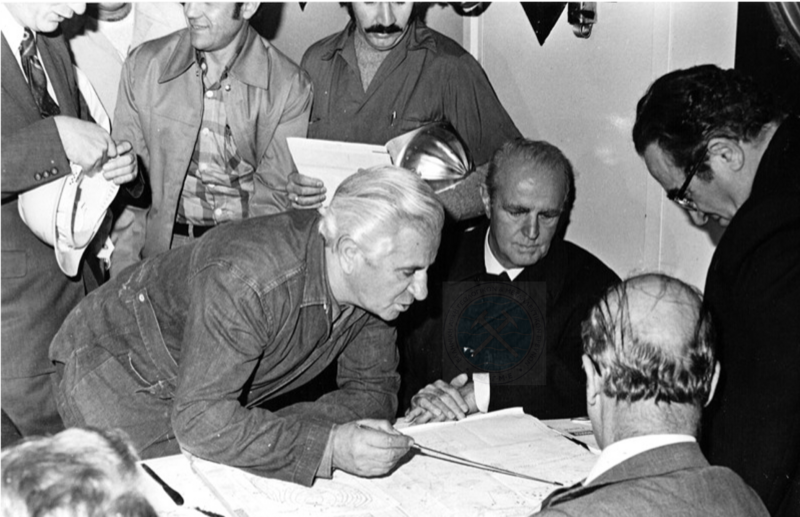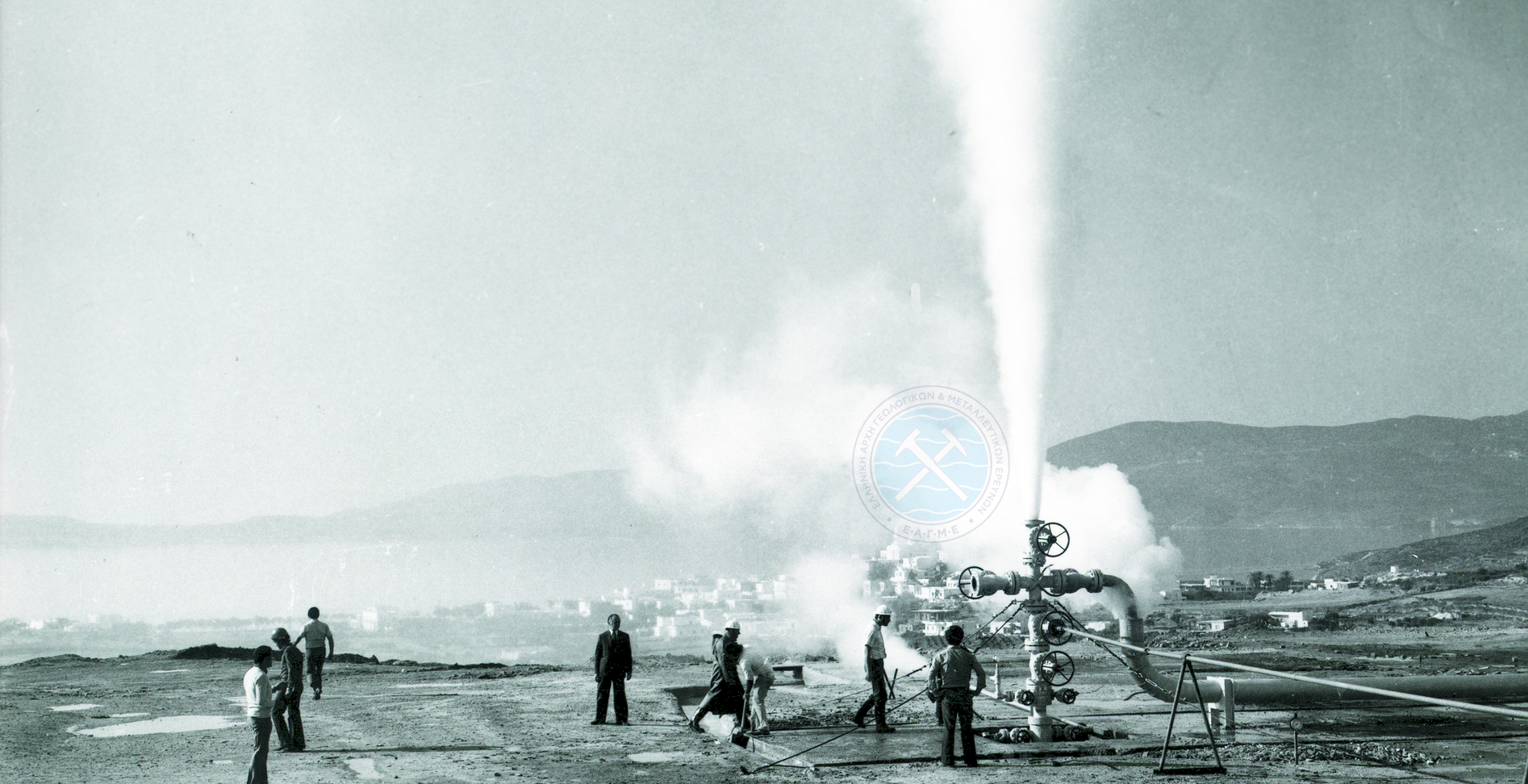Article by Euronews on the commemorative album that captures the establishment and evolution of Greece’s National Geological Service from 1919 to the present day.
A commemorative album depicting the history of the establishment and development of Greece’s National Geological Service from 1919 to today was created by the Hellenic Survey of Geology and Mineral Exploration (HSGME). Across 416 pages enriched with historical documents and photographs from geological surveys of underground and underwater deposits, mines, seismic fields, volcanoes, geological phenomena, and caves, it records the past and present of the Earth sciences as well as Greece’s ongoing effort to highlight its geological wealth.
As stated in the opening pages, the album “is dedicated to the pioneers and all those who labored in the field of Geology and mineral research of the country.”

The historical course of the Geological Service in Greece began almost a hundred years after the start of the revolutionary struggle of 1821 for the country's liberation from Ottoman rule and the creation of an independent Greek state. This delay was due to the turbulent and lengthy process of organizing the new nation, as well as to the significant lag of the fledgling Greek state behind Western countries in the field of the natural sciences and its lack of scientists, technicians, and engineers. The Geological Service was established in Greece in 1919 and was initially under the Ministry of Transport. A few years earlier, in 1861, the first "Mining Law" had been enacted, later replaced by a new one in 1910. At that time, only a handful of Greeks specialized in geosciences, having studied or completed their studies at universities in Europe.
The development of the natural sciences in Greece was supported by the establishment of the University of Athens in 1837, the first not only in the Greek state but in the entire Balkan Peninsula and the wider Eastern Mediterranean. However, at that time there was no professor specifically for geology or mineralogy, as these subjects fell under the Chair of Natural History. In 1896, the Laboratory and Museum of Mineralogy and Petrology were founded, followed by the establishment of the Chair of Geology and Paleontology along with the corresponding Laboratory and Museum in 1906. The National Technical University of Athens (NTUA) functioned as a higher education institution after 1889, adopting its current name in 1914. Its predecessor, the "Polytechnic School," had been founded in 1837 as a technical school operating only on Sundays. The first Mining and Metallurgical Engineers graduated in 1950 from departments that were formally established in 1946 within the School of Chemical Engineering. In 1952, the two departments merged, and the School became autonomous in 1975.

100 years – LATO KLODIAN / Eurokinissi
The commemorative album “100 Years of the Geological Service in Greece (1919–2019)” is available for specialized research purposes and includes forewords by HSGME President Konstantinos Saltas and Director General Andreas Tsokos.
Its presentation took place on July 14, 2021, in the foyer of the under-construction National Geological Museum — the first of its kind in Greece — located at the central facilities of HSGME in Acharnes and expected to open its doors by the end of October.
The event was attended by Metropolitan Athinagoras of Ilion, Acharnes and Petroupolis; Minister of Digital Governance Kyriakos Pierrakakis; Secretary General for Energy and Mineral Resources at the Ministry of Environment and Energy Alexandra Sdoukou; Secretary General for Waste Management Manolis Grafakos; and Secretary General for International Economic Relations and Extroversion at the Ministry of Foreign Affairs Ioannis Smyrlis. Video messages were sent by Minister of Environment and Energy Kostas Skrekas; Minister of Labor Kostis Hatzidakis; Minister of Migration and Asylum Notis Mitarakis; Deputy Minister of Education and Religious Affairs Zetta Makri; Deputy Minister of Foreign Affairs Kostas Vlasis; Deputy Minister of Development and Investments Christos Dimas; and Deputy Minister of Shipping and Island Policy Kostas Katsafados. Letters of appreciation were also received from the Regional Governor of Attica Giorgos Patoulis and Deputy Minister of Culture and Sports Lefteris Avgenakis.
Source: Euronews


